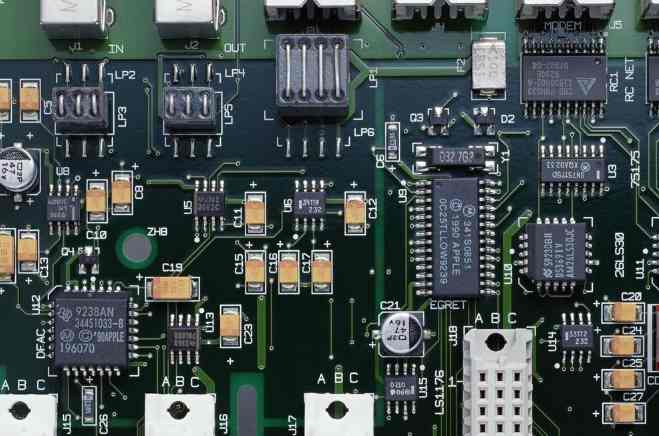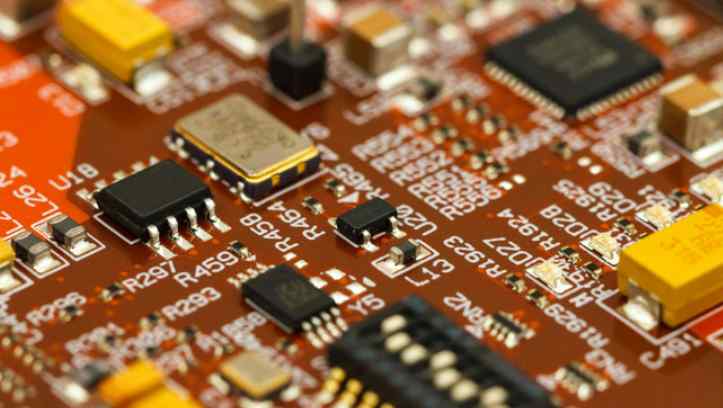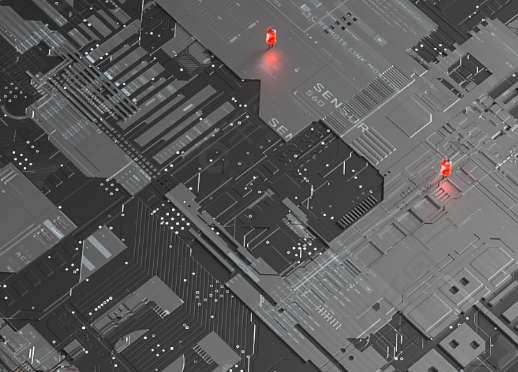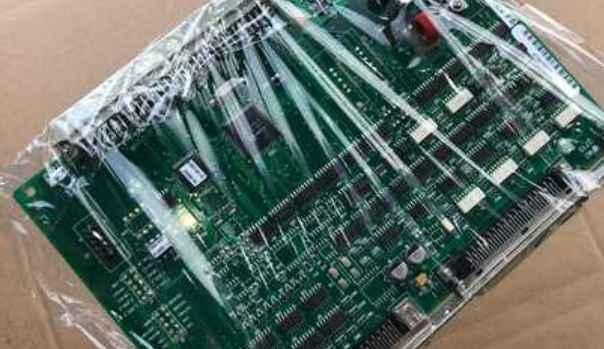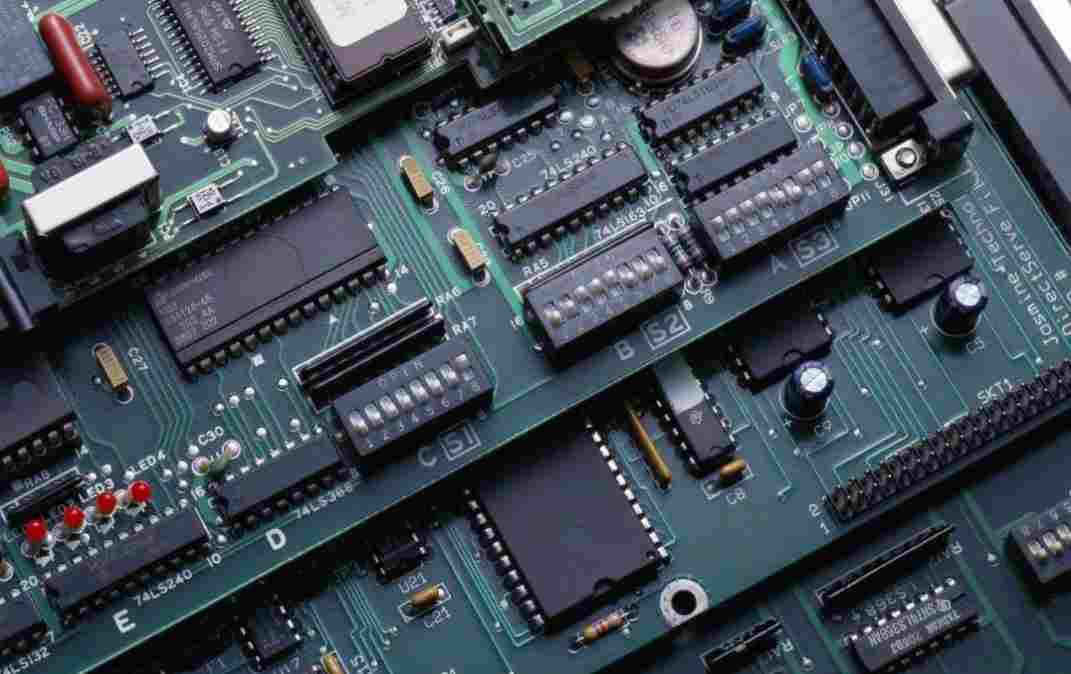
Various forms and causes of power noise interference in current high frequency PCB board, through formula deduction, combined with engineering experience, put forward a number of corresponding countermeasures, finally summed up the general principle of power noise suppression should follow. In high frequency PCB board, the most important kind of interference is the power supply noise. Through the systematic analysis of the characteristics and causes of the power supply noise on the high-frequency circuit board, combined with the engineering application, some very effective and simple solutions are put forward.
First, the analysis of power supply noise
Power supply noise refers to the noise generated by the power supply itself or induced by the disturbance. Its interference is manifested in the following aspects:
1. Distributed noise caused by the inherent impedance of the power supply itself. In high frequency circuit, power supply noise has great influence on high frequency signal. Therefore, low noise power supply is needed first. Clean ground and clean power are equally important.
Ideally, a power supply is impedance free, so there is no noise. However, the actual power supply has a certain impedance, and the impedance is distributed throughout the power supply, so the noise will be superimposed on the power supply. Therefore, the impedance of the power supply should be reduced as much as possible, and it is best to have a special power layer and ground. In high frequency circuit design, it is generally better to design the power supply in the form of layers than in the form of buses, so that the loop can always follow the path with the least impedance. In addition, the power board has to provide a signal loop for all generated and received signals on the PCB circuit board. This minimizes the signal loop and thus reduces noise.
2. Common-mode field interference
Refers to the noise between the power supply and the ground, which is caused by a power supply caused by the loop formed by the interfered circuit and the common mode voltage caused by the common reference surface, and its value depends on the relative strength of the electric field and magnetic field. On this channel, a drop in Ic causes a common-mode voltage in the current loop in series, affecting the receiving portion.
3. Differential mode field interference
Interference between power supply and input/output power lines. In actual PCB design, its proportion in the power supply noise is very small.
4. Interwire interference
Interference between power cables. When there is mutual capacitance C and mutual inductance M1-2 between two different parallel circuits, if there is voltage VC and current IC in the interference source circuit, the interfered circuit will appear: through the series resistance of inductive coupling, if there is common mode noise in the interference source, the interline interference is generally presented as common mode and differential mode two forms.
5. Power cable coupling
It refers to the phenomenon that the AC or DC power cables transmit electromagnetic interference to other devices. This is the interference of the power supply noise to the high frequency circuit indirectly. It should be noted that the noise of the power supply is not necessarily generated by itself, but also may be induced by external interference. Then the noise and the noise generated by itself are superimposed (radiation or conduction) to interfere with other circuits or devices.

Second, the countermeasure to eliminate the interference of power supply noise
According to the above analysis of the different forms and causes of power noise interference, we can destroy the conditions of its occurrence, can effectively restrain the interference of power noise. The solutions are:
(1) Pay attention to the through hole on the board
Through holes require etched openings in the power layer to allow room for through holes. If the opening of the power layer is too large, it is bound to affect the signal loop, the signal is forced to detour, the loop area increases, and the noise increases. At the same time, if some signal lines are concentrated near the opening, sharing this section of the loop, the public impedance will cause crosstalk.
(2) The connection line needs enough ground wire
Each signal needs to have its own proprietary signal loop, and the loop area of the signal and loop is as small as possible, that is to say, the signal and the loop should be parallel.
(3) Place the power supply noise filter
It can effectively suppress the internal noise of the power supply and improve the anti-interference and security of the system. Moreover, it is a bidirectional radio frequency filter, which can not only filter the noise interference introduced from the power line (to prevent interference from other equipment), but also filter the noise generated by itself (to avoid interference from other equipment), and inhibit the serial-mode common-mode interference.
(4) power isolation transformer
By separating the common-mode ground loop of the power supply loop or the signal cable, it can effectively isolate the common-mode loop current generated in high frequency.
(5) power voltage regulator
Restoring a cleaner power source can greatly reduce the power noise level.
(6) Wiring
The input and output lines of the power supply should be avoided at the edge of the dielectric plate; otherwise, radiation may be generated and interfere with other circuits or devices.
(7) analog and digital power should be separated
High-frequency devices are generally very sensitive to digital noise, so the two are separated and connected at the entrance to the power supply. If the signal is to span both analog and digital parts, a loop can be placed at the signal span to reduce the loop area.
(8) Avoid overlapping of separate power sources between different layers
Stagger them as much as possible, otherwise the power supply noise can easily be coupled past the parasitic capacitance.
(9) isolation sensitive element
Some components such as phase-locked loops (PLLS) are very sensitive to power supply noise and should be kept as far away from the power supply as possible.
(10) Place the power cable
In order to reduce the signal loop, the noise can be reduced by placing the power line near the signal line.
(11) In order to prevent the interference of the power supply noise on the circuit board and the accumulation of noise caused by external interference on the power supply, a bypass capacitor can be grounded on the interference path (except radiation), so that the noise can be bypassed to the ground to avoid interference with other equipment and devices.
Power supply noise is directly or indirectly generated from the power supply, and interference to the circuit, in the suppression of its influence on the circuit, should follow a general principle, that is: on the one hand, to prevent the influence of the power supply noise as far as possible, on the other hand, also to minimize the influence of the external or circuit on the power supply, so as not to worsen the power supply noise.


